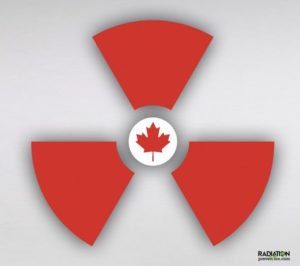
Nuclear experts raise new concerns about industry-led policy proposals to separate plutonium in Canada
(Sept. 25 2023) Twelve internationally recognized nuclear experts have sent an open letter to Prime Minister Justin Trudeau, expressing new concerns over nuclear weapons proliferation risks associated with a government-funded nuclear reprocessing project in New Brunswick.
The authors cite new information obtained through Access to Information. They quote from recently released internal documents that reveal a governmental “policy-making process on reprocessing in collaboration with the international CANDU Owners Group (COG)”.
The letter points out that such activity runs counter to the G7 statement that Canada endorsed in Hiroshima, on 19 May 2023, pledging “to reduce the production and accumulation of weapons-usable nuclear material for civil purposes around the world.”
In 2021, Ottawa gave $50.5 million to Moltex, a UK-based company. Moltex plans to separate plutonium and other materials from used nuclear fuel already stored at Point Lepreau nuclear plant on the Bay of Fundy. Moltex hopes to use the materials as fuel in its “molten salt” reactor.
Moltex says its technology is proliferation resistant, that the material extracted is not “weapons usable”. However, the letter cites two expert U.S. studies , published in 2009 and 2023, that challenge that claim. Both conclude that protection against weapons use is marginal at best.
Reprocessing is a technology for extracting plutonium from used nuclear fuel. It is a sensitive technology because plutonium is a nuclear explosive. Any nation or subnational group with access to separated plutonium can use it to make a nuclear bomb.
In 1974 India exploded its first atomic bomb using plutonium from a Canadian research reactor. U.S. President Carter banned reprocessing in 1977, and Canada followed suit by nixing commercial reprocessing in Canada.
Civilian reprocessing runs the risk of spreading the bomb by making weapons-usable materials more easily available. This is especially true when such technology is exported, as Moltex eventually hopes to do. But even without exports, government funding of reprocessing sends a signal to other countries that reprocessing is perfectly acceptable as a civilian energy strategy.
The Canadian Coalition for Nuclear Responsibility warns that the new information raises questions about the extent to which nuclear promoters are writing public policy on nuclear issues in Canada.
In fact, Canada’s 2019 Impact Assessment Act exempts reprocessing plants of a certain size from Environmental Assessment, implying that such plants are under consideration.
– 30 –
news release linked here, on Canadian Coalition for Nuclear Responsibility website: